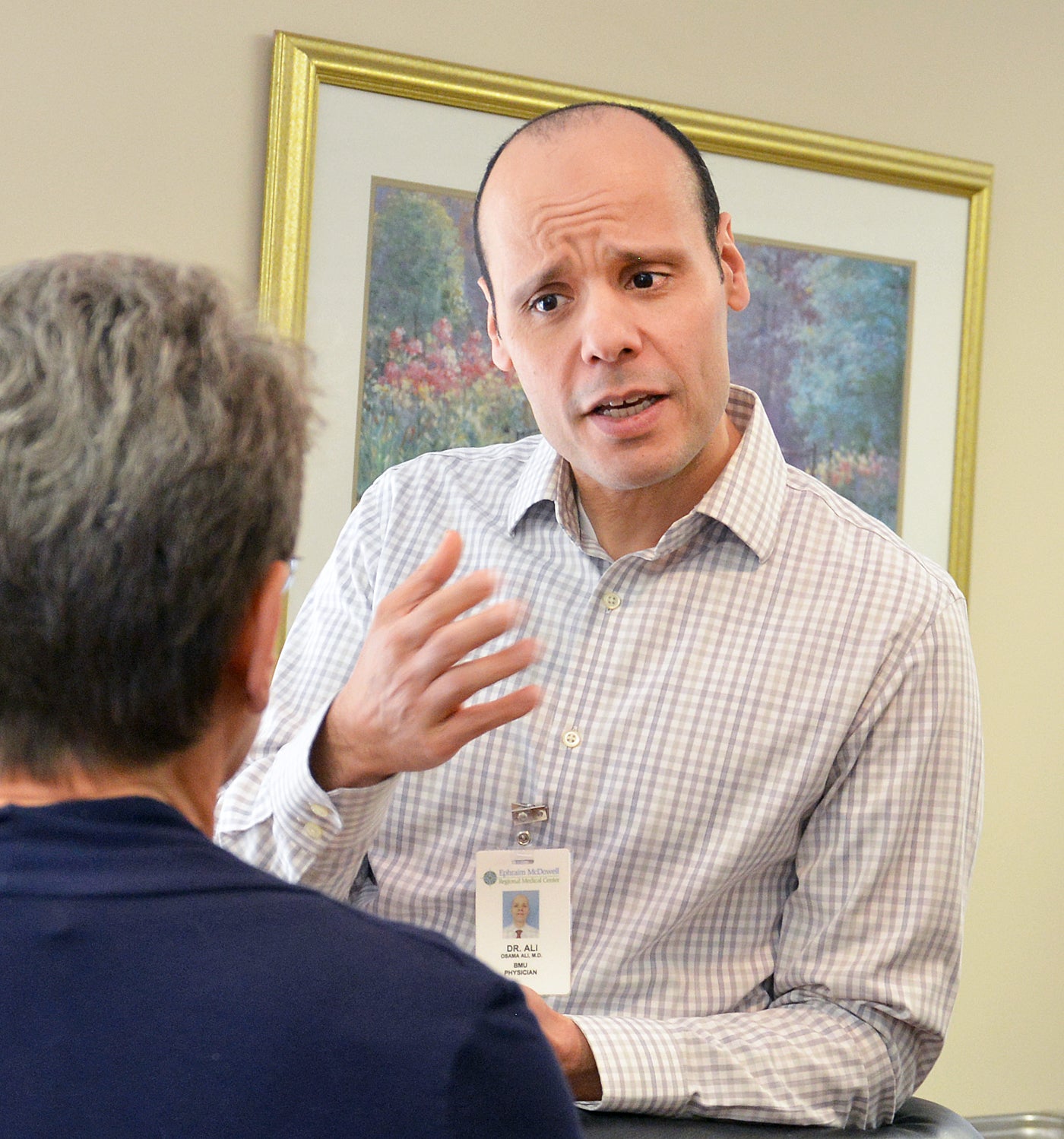Detox program now open at Ephraim McDowell hospital
Published 7:02 pm Friday, July 26, 2019

- Dr. Osama Ali, who will be helping detox patients thorugh medication and counseling at Ephraim McDowell Regional Medical Center, speaks with a visitor during his welcome reception on Friday. (Photo by Robin Hart)
Ephraim McDowell Regional Medical Center is now accepting patients who have a substance abuse problem and need help detoxing before getting the recovery support they want.
According to Behavior Medicine Director Megan Shelton, the hospital has been treating substance abuse and mental health patients in its behavioral health unit because many times “they go hand in hand.”
But now it can also help patients who are detoxing, under the direction of Dr. Osama Ali, who joined the staff the first of this month. He is board-certified in psychiatry and addiction psychiatry by the American Board of Psychiatry and Neurology. He’s also board-certified in addiction medicine by the American Board of Addiction Medicine.
“If they’re wanting the help to get off the drugs, this gives them an option to detox. The opioid detox can be done … if someone has enough willpower. But people usually don’t have that enough,” Shelton said. “They don’t usually die from opioid detox, but it makes it a much more pleasant experience — being treated at the hospital, being given medication to help with the detox process.”
Dr. Ali has already treated several people who wanted to detox before moving on to the next step of recovery for a clean and sober life, he said.
“I detox with medications and counseling and also help them to establish outpatient care,” for when they are discharged from the hospital, Ali said.
“… Substance abuse now is a big issue everywhere. The goal is to help the patients and get them back to normal life (so) they can work and be productive,” Dr. Ali said.
When an overdose patient came into the emergency room in the past, he or she would be treated for the immediate crisis then released.
Now, “once the acute crisis is resolved, we’ll see them,” Shelton said. But, “they have to make a conscious decision. They have to be willing to (go to) treatment,” Shelton said, which could take between three to five days. “It depends on the person and what medication they were using.”
Not every detox patient will be sent to the behavioral health unit, Shelton said. “We will intermingle them in the system.”
And, a substance abuse patient doesn’t have to be in an emergency health situation to be admitted for detox purposes, Ali said. Plus, they don’t have to have a referral to receive help — although agencies and physicians can refer them, he added.
“They (substance abuse patients) can go to the emergency room. They can come in by themselves. They can be referred from different places,” Ali said.
Anyone seeking help will be evaluated in the emergency room to make sure they are stable, Shelton said. Then they will be admitted for detox to take place.
“The family can bring them to the emergency room, tell us what they want and we’ll take them upstairs,” Shelton said.
“And then we’ll take it from there,” Ali added.
Whether it is to make a plan to get help for their problems or to detox, Ali said, “We will guide them on the steps they need to take next.”






